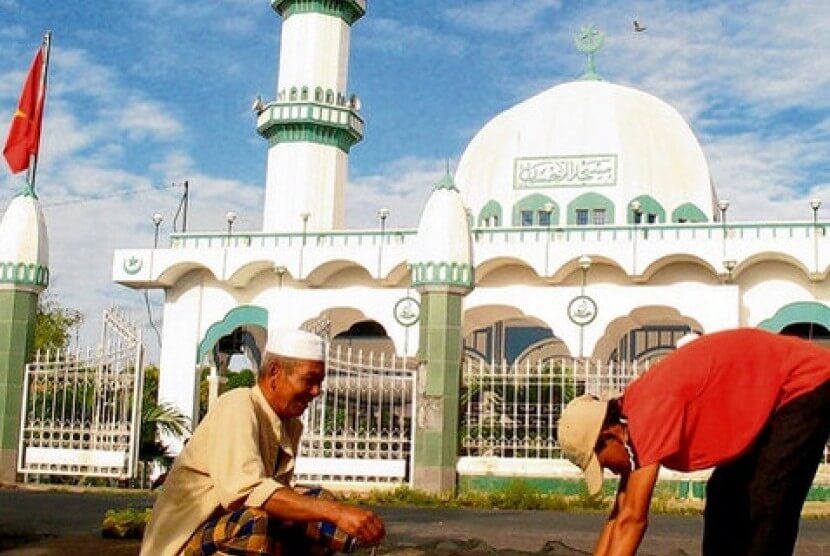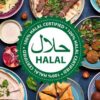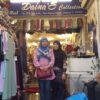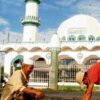Table of Contents
- 1 1. Historical Background of Muslim People in Vietnam
- 2 2. The Demographics of Muslim People in Vietnam
- 3 3. Religious Practices and Cultural Traditions
- 4 4. Halal Tourism and the Growing Muslim-Friendly Infrastructure
- 5 5. Challenges Facing Muslim People in Vietnam
- 6 6. Contributions of Muslim People to Vietnamese Society
- 7 7. The Future of the Muslim Community in Vietnam
- 8 8. Conclusion
Vietnam, a country known for its rich cultural tapestry, is home to a diverse population that includes a small but vibrant Muslim community. The Muslim people in Vietnam have a unique cultural heritage, shaped by centuries of history, trade, and interaction with other communities. Although they represent a minority in a predominantly Buddhist and Catholic country, the Muslim population in Vietnam continues to thrive, preserving their traditions and contributing to the nation’s diversity.
1. Historical Background of Muslim People in Vietnam
The presence of Muslim people in Vietnam dates back to the early centuries, primarily through trade and migration. Islam was introduced to Vietnam by Arab and Persian traders who arrived by sea, bringing with them not only goods but also their religious beliefs. The Cham people, an ethnic group native to central and southern Vietnam, were among the earliest converts to Islam.
The Cham people had established the Kingdom of Champa, which flourished between the 2nd and 17th centuries along Vietnam’s central coast. By the 10th century, Islam began to take root among the Cham, largely due to interactions with Muslim traders from the Middle East, India, and Malaysia. Over time, Islam became the dominant religion among the Cham in certain regions, especially after the fall of the Champa Kingdom, when many Cham fled to southern Vietnam and Cambodia.
Today, the Cham Muslims represent the largest Muslim group in Vietnam, preserving their Islamic faith and cultural practices despite the challenges they have faced over the centuries.
2. The Demographics of Muslim People in Vietnam
The Muslim population in Vietnam is relatively small, estimated at around 80,000 to 100,000 people. This community is primarily concentrated in the central and southern regions of the country, particularly in the provinces of Ninh Thuận, Bình Thuận, An Giang, and the Mekong Delta.
The Cham Muslims form the majority of the Muslim population in Vietnam, but there are also smaller groups of ethnic Vietnamese, Malay, and other Muslim communities. These groups have maintained their religious practices and cultural traditions, contributing to the rich cultural mosaic of Vietnam.
3. Religious Practices and Cultural Traditions
Muslim people in Vietnam adhere to the Five Pillars of Islam, which include the declaration of faith, daily prayers, fasting during Ramadan, almsgiving, and the pilgrimage to Mecca (Hajj). Despite being a minority, the Muslim community in Vietnam practices their faith with dedication and resilience.
One of the unique aspects of the Muslim community in Vietnam is the presence of two distinct sects: Sunni and Bani. The Sunni Muslims follow the traditional practices of Islam and have strong connections with the global Muslim community. They observe all the major Islamic rituals and holidays, including Ramadan, Eid al-Fitr, and Eid al-Adha.
The Bani Muslims, on the other hand, practice a syncretic form of Islam that blends traditional Cham beliefs with Islamic teachings. This sect is unique to Vietnam and reflects the cultural integration that has occurred over centuries. The Bani Muslims observe some Islamic practices but have distinct rituals and customs that set them apart from other Muslim communities.
Mosques and masjids are central to the religious life of Muslim people in Vietnam. Notable mosques include the Jamiul Muslimin Mosque in Ho Chi Minh City, which is the largest mosque in the country, and the Mubarak Mosque in An Giang, one of the oldest mosques in Vietnam. These places of worship serve as community centers where Muslims gather for prayers, religious education, and social activities.
4. Halal Tourism and the Growing Muslim-Friendly Infrastructure
As Vietnam continues to open up to the world, there has been a growing interest in halal tourism, catering to the needs of Muslim travelers. This trend has led to the development of Muslim-friendly infrastructure, particularly in major cities like Ho Chi Minh City, Hanoi, and Da Nang.
Halal-certified restaurants, hotels, and travel services have become more prevalent, offering Muslim travelers the convenience of maintaining their dietary restrictions and religious practices while exploring Vietnam. This has also benefited the local Muslim population, who now have more options for halal food and services.
In addition to halal dining, several hotels in Vietnam are now offering prayer facilities, halal-certified kitchens, and other amenities that cater to Muslim guests. This development is part of a broader trend to make Vietnam a more inclusive destination for tourists from around the world.
5. Challenges Facing Muslim People in Vietnam
While the Muslim community in Vietnam has made significant strides in preserving their culture and religion, they continue to face challenges. One of the primary challenges is the preservation of their cultural and religious identity in a predominantly non-Muslim society. The small size of the Muslim population means that they often lack representation in national media and public discourse.
Access to halal food, religious education, and appropriate burial sites can also be difficult, particularly in areas where the Muslim population is sparse. Additionally, the lack of Islamic schools and educational resources means that many young Muslims in Vietnam must rely on family and community networks to learn about their faith.
However, the resilience of the Muslim community in Vietnam is evident in their ability to maintain their traditions and support one another through community organizations and religious institutions.
6. Contributions of Muslim People to Vietnamese Society
Despite their small numbers, Muslim people in Vietnam have made significant contributions to the country’s cultural and social fabric. The Cham Muslims, in particular, have a rich cultural heritage that includes traditional crafts, music, dance, and cuisine.
Cham textiles, known for their intricate patterns and vibrant colors, are highly regarded and have become an important part of Vietnam’s cultural heritage. Cham music and dance, which often accompany religious ceremonies and festivals, add to the diversity of Vietnam’s artistic traditions.
In addition to their cultural contributions, Muslims in Vietnam have also played a role in the country’s economic development. Many Muslims are engaged in trade, agriculture, and small businesses, contributing to the local economy and providing valuable services to their communities.
The growing interest in halal tourism has also created opportunities for Muslims in Vietnam to participate in the tourism industry, offering unique experiences and services that cater to Muslim travelers.
7. The Future of the Muslim Community in Vietnam
The future of the Muslim community in Vietnam looks promising as the country continues to grow and integrate into the global economy. The increasing recognition of halal tourism and the development of Muslim-friendly infrastructure are positive signs that Vietnam is becoming more inclusive and accommodating to different cultures and religions.
As younger generations of Muslims in Vietnam become more engaged in their faith and cultural identity, they are likely to play a vital role in the continued growth and development of their community. With the support of their families, community organizations, and the broader society, the Muslim people in Vietnam will continue to thrive and contribute to the nation’s rich cultural diversity.
8. Conclusion
The Muslim people in Vietnam are a testament to the country’s rich cultural diversity and resilience. Despite being a minority, they have managed to preserve their religious and cultural traditions while contributing to the broader Vietnamese society. As Vietnam continues to develop and embrace its multicultural identity, the Muslim community will undoubtedly play an important role in shaping the country’s future.




